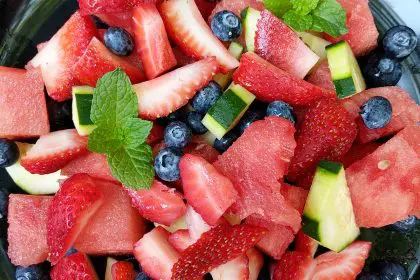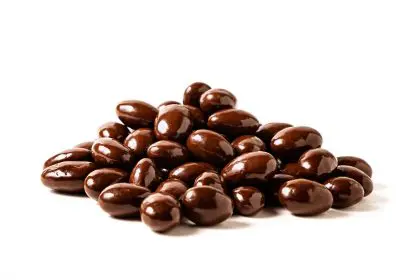In today’s world of overwhelming health information, understanding how our food choices affect aging has become both more crucial and more challenging than ever. Recent scientific studies have revealed surprising connections between dietary habits and biological aging, while simultaneously highlighting the importance of carefully evaluating health claims.
The science behind food and aging
Recent research has uncovered a startling connection between dietary quality and biological aging that extends far beyond traditional understanding. Scientists have discovered that diets high in processed foods, particularly fast food and sugary beverages, can accelerate the aging process even in young adults. This finding challenges previous assumptions that aging-related dietary concerns primarily affect older populations. Most concerning is the revelation that consuming more than 14% of total calories from ultra-processed foods correlates with accelerated biological aging, as evidenced by various blood biomarkers.
The cellular perspective
At the microscopic level, the relationship between nutrition and aging reveals fascinating insights into how our dietary choices influence fundamental biological processes. Scientists studying mitochondria, our cells’ energy-producing powerhouses, have discovered their role as reservoirs for NAD, a crucial molecule for energy production and cellular health. A groundbreaking three-year study demonstrated that participants taking omega-3 supplements experienced a remarkable slowdown in biological aging, equivalent to three to four months, with even greater benefits when combined with regular exercise.
Beyond juice cleanses
While juice cleanses have gained popularity as a quick health fix, recent scientific investigation raises significant concerns about their impact on gut health. Research reveals that even a brief three-day juice cleanse can dramatically alter the gut microbiome, increasing inflammatory bacteria while decreasing beneficial populations. These microbiome changes carry far-reaching implications for overall health, from immune response to mental well-being. Medical experts, including Registered Dietitian Megan Mehnert, emphasize that juice cleanses often fail to provide adequate nutrition and may create energy deficits that compromise rather than enhance health.
Navigating health information
The current landscape of health information demands careful navigation and critical thinking. Popular health trends often come wrapped in compelling marketing messages that may not align with scientific evidence. Even well-conducted studies, such as the recent juice cleanse research, may have limitations in sample size or duration that affect their broader applicability.
Understanding processed foods
Recent studies have highlighted the significant impact of ultra-processed foods on biological aging. The convenience these foods offer may come at a considerable cost to our health, affecting not just our current well-being but potentially accelerating the aging process at a cellular level. Research consistently demonstrates that whole foods support healthy aging more effectively. Fresh fruits, vegetables, lean proteins, and whole grains provide essential nutrients that support cellular health in ways that cannot be replicated through supplements or processed alternatives.
The exercise connection
The relationship between diet and exercise in promoting healthy aging has emerged as a crucial area of study. Research indicates that proper nutrition combined with regular physical activity creates a synergistic effect, suggesting that a holistic approach yields the best results for healthy aging. This interaction becomes particularly important when considering how different nutrients are utilized during and after physical activity.
Stress and lifestyle factors
Modern research has uncovered important connections between diet, stress, and aging. High stress levels combined with poor dietary choices may accelerate biological aging, while stress management techniques alongside healthy eating habits help maintain cellular health. This understanding has led to more comprehensive approaches to health management that consider both psychological and nutritional factors.
The role of supplements
While certain supplements show promise in supporting healthy aging, particularly omega-3s, research emphasizes the importance of obtaining nutrients primarily through whole foods. Supplements should serve as complements to, rather than replacements for, a balanced diet rich in natural, unprocessed foods. This approach ensures the body receives the full spectrum of nutrients needed for optimal health.
Looking toward the future
Ongoing research continues to uncover new connections between diet and aging. Scientists are particularly interested in understanding how different dietary patterns affect cellular aging markers and how these effects might be modified by individual genetic factors. This personalized approach to nutrition and aging may lead to more targeted dietary recommendations in the future.
Practical implementation
Translating these research findings into practical dietary guidelines remains a crucial challenge. Healthcare providers and nutritionists work to develop evidence-based recommendations that balance scientific knowledge with real-world applicability. This process requires considering individual differences, lifestyle factors, and practical constraints while maintaining scientific validity.
In conclusion, the relationship between diet, aging, and health proves more complex than previously understood. Recent research provides valuable insights into how our food choices affect biological aging while emphasizing the importance of approaching health information with critical thinking and discernment. By understanding these connections and making informed choices about diet and lifestyle, we can work toward optimizing our health and potentially slowing the aging process. However, this requires careful navigation of health information and a commitment to evidence-based practices rather than following trending health fads.













